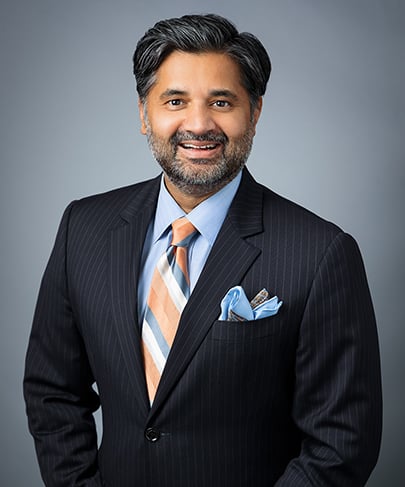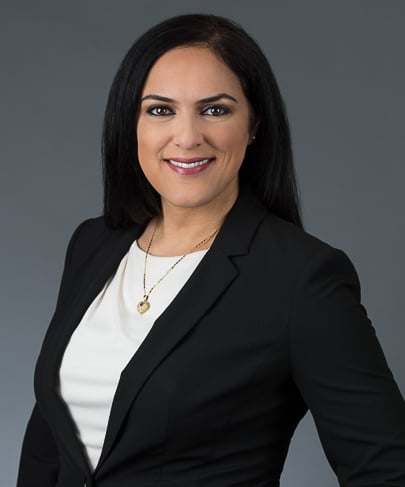USCIS Publishes Final Rule on H-1B Registration and Scheme for a More Effective H-1B Program
Download PDF- Levasseur, Elise S.
- Industry Alerts
Want to get our alerts?
Click “Subscribe Now” to get attorney insights on the latest developments in a range of services and industries.
On January 31, 2019, the USCIS published its final rule amending H-1B regulations which operate to change two important aspects of filing cap-subject H-1B visa petitions, effective April 1, 2019. The first change implements an H-1B electronic registration system, which will be suspended for the fiscal year 2020 cap season, and the second amendment reverses the order by which the USCIS selects H-1B petitions under the H-1B regular cap and the U.S. advanced degree exemption.
The USCIS believes the new rules will present a positive benefit for employers, foreign workers and USCIS adjudicators, reduce the overall cost for employers and improve government efficiency as well as achieve President Trump's instructions under his April 18, 2017 Executive Order: "Buy American and Hire American" ("BAHA"). Under BAHA, President Trump ordered the USCIS to revise its rules and guidance to protect the interests of U.S. workers under the H-1B program and to ensure that H-1B visas are issued to the most skilled and highest-paid H-1B beneficiaries.
On April 1, 2019, the USCIS will first select H-1B petitions (or registration, once the registration requirement is implemented) submitted on behalf of all beneficiaries, including those that are eligible for the advanced degree exemption. Subsequently, the USCIS will select from the remaining eligible petitions, a number projected to reach the advanced degree exemption. The USCIS believes that reversing the order in which the USCIS counts these allocations will increase the number of petitions for beneficiaries with a U.S. Master's Degree or higher. The USCIS believes the change will result in an increase of up to 16% (or 5,340 workers) in the number of selected petitions for holders of U.S. advanced degrees or higher from a U.S. institution of higher learning.
The USCIS announced that for FY 2020, it will be suspending the electronic registration requirement in order to complete user testing and to ensure the system and processes are fully functional. Once the new registration requirement is implemented, petitioners seeking to file H-1B cap subject petitions, including for those holding U.S. advanced degrees to first register with the USCIS during a designated registration period. Only those whose registrations are selected will be eligible to file an H-1B cap-subject petition.
The USCIS stated that it will publish a notice in the Federal Register to announce the initial implementation of the H-1B registration process prior to the commencement of the FY 2021 cap season, and that prior to the implementation, it will conduct an outreach program.
This client alert is published by Dickinson Wright PLLC to inform our clients and friends of important developments in the field of immigration law. The content is informational only and does not constitute legal or professional advice. We encourage you to consult a Dickinson Wright attorney if you have specific questions or concerns relating to any of the topics covered in here.
The USCIS believes the new rules will present a positive benefit for employers, foreign workers and USCIS adjudicators, reduce the overall cost for employers and improve government efficiency as well as achieve President Trump's instructions under his April 18, 2017 Executive Order: "Buy American and Hire American" ("BAHA"). Under BAHA, President Trump ordered the USCIS to revise its rules and guidance to protect the interests of U.S. workers under the H-1B program and to ensure that H-1B visas are issued to the most skilled and highest-paid H-1B beneficiaries.
On April 1, 2019, the USCIS will first select H-1B petitions (or registration, once the registration requirement is implemented) submitted on behalf of all beneficiaries, including those that are eligible for the advanced degree exemption. Subsequently, the USCIS will select from the remaining eligible petitions, a number projected to reach the advanced degree exemption. The USCIS believes that reversing the order in which the USCIS counts these allocations will increase the number of petitions for beneficiaries with a U.S. Master's Degree or higher. The USCIS believes the change will result in an increase of up to 16% (or 5,340 workers) in the number of selected petitions for holders of U.S. advanced degrees or higher from a U.S. institution of higher learning.
The USCIS announced that for FY 2020, it will be suspending the electronic registration requirement in order to complete user testing and to ensure the system and processes are fully functional. Once the new registration requirement is implemented, petitioners seeking to file H-1B cap subject petitions, including for those holding U.S. advanced degrees to first register with the USCIS during a designated registration period. Only those whose registrations are selected will be eligible to file an H-1B cap-subject petition.
The USCIS stated that it will publish a notice in the Federal Register to announce the initial implementation of the H-1B registration process prior to the commencement of the FY 2021 cap season, and that prior to the implementation, it will conduct an outreach program.
This client alert is published by Dickinson Wright PLLC to inform our clients and friends of important developments in the field of immigration law. The content is informational only and does not constitute legal or professional advice. We encourage you to consult a Dickinson Wright attorney if you have specific questions or concerns relating to any of the topics covered in here.
Related Practices
Contacts

Mark Heusel
Member and East Asia Practice Group Chair - China, Taiwan, Japan, Korea, ASEAN Region
Ann Arbor

Mahesh Nayak
Member and International Practice Group Co-Chair
Troy
Recent Insights
- Industry Alerts Trump Administration Announces Changes to the H-1B Program
- Industry Alerts DW China Trade Update (35th Edition) | 迪克森律所中国团队简报 (第三十五期)
- Industry Alerts USMCA:新たなUSMCAには移民関連条文とTNビザの改正は盛り込まれておりません | USMCA: Immigration Chapter and TN Visas Unaffected By New Law
- April 14, 2025 Media Mentions Kathleen Campbell Walker was recently quoted in a Vox article, “How worried should legal immigrants be about Trump’s deportations?”
- March 31, 2025 Media Mentions Kathleen Campbell Walker was recently quoted in The Wall Street Journal article, "Border Agents Use More Aggressive Tactics to Question Visa Holders, Tourists."
- March 11, 2025 Media Mentions Kathleen Campbell Walker was recently quoted in the Newsweek article, “What to Know About the H-1B Program: Pros, Cons and Hiring Alternatives.”
- March 11, 2025 In the News Three Dickinson Wright Lawyers Recognized in Chambers Global Guide 2025
- March 03, 2025 Media Mentions Kathleen Campbell Walker was recently quoted in the Snopes article, “Unpacking Trump Admin's Claim That 'All' Undocumented Immigrants Are Criminals.”
- February 04, 2025 Industry Alerts Protecting Students and Schools: Guidance on Federal Agent Presence







